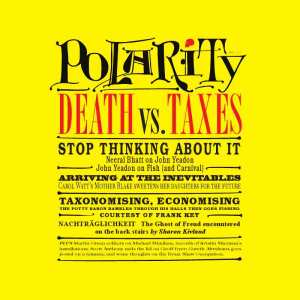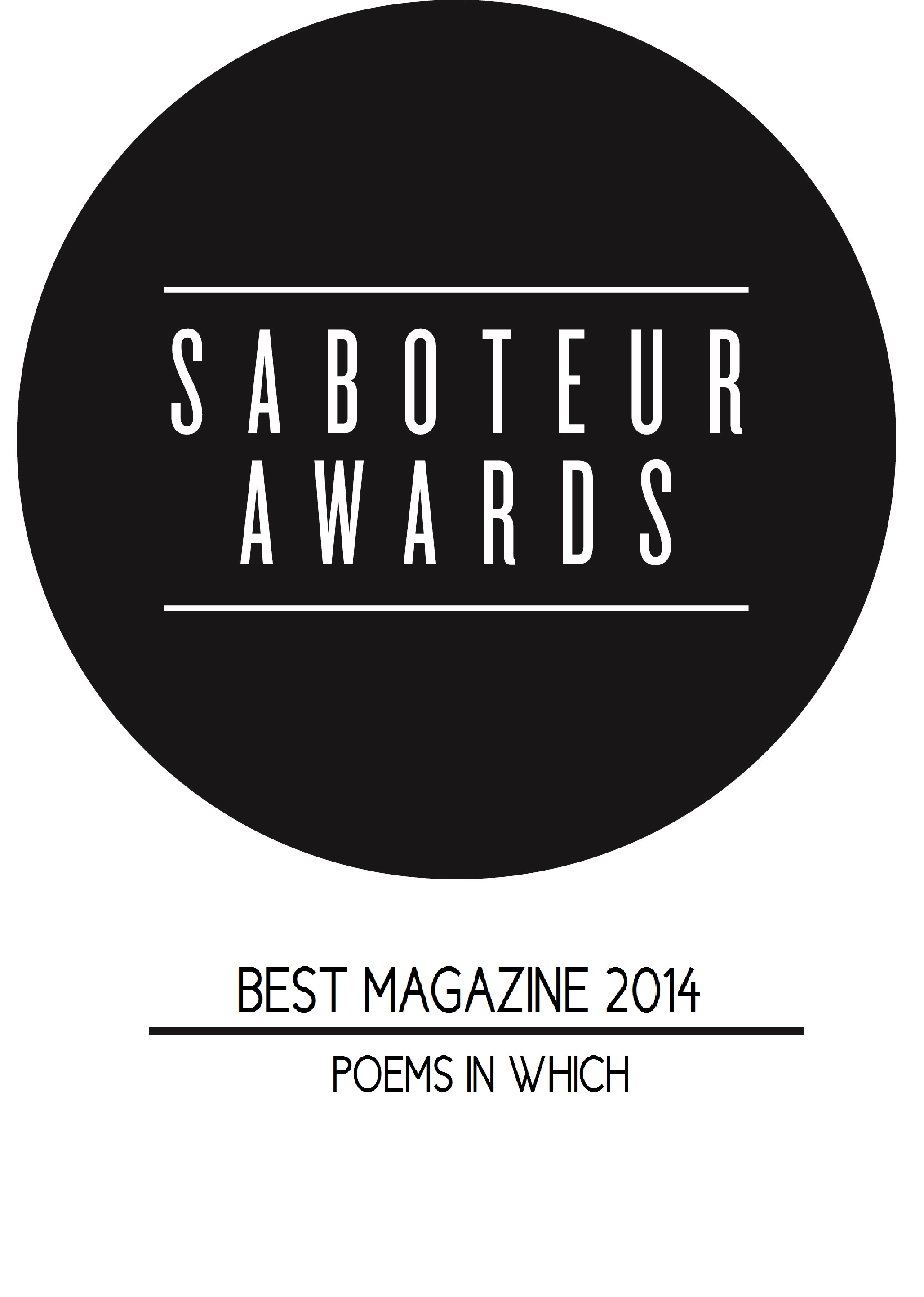Polarity Magazine #1 ‘Death vs. Taxes’
Polarity is a rare audacity in the midst of budget cuts: a beautifully produced glossy-papered magazine. At a time when magazines tend to keep themselves to the less pricey realm of internet, this is a bold move funded by editor George Ttouli and his parents. The magazine aims to fill a gap in the market by promoting new surrealist works in themed issues organized around two falsely polarized concepts, hence the name.
This first issue, ‘Death vs Taxes’ comes with a bonus supplement ‘A System of Taxation Upon the Internal Mind’ – a playful booklet giving tax codes for different types of thoughts and leaving the ‘punishment’ box blank for your own suggestions. These thoughts include Batailling: Thinking of the physiognomy of officials (prelates, magistrates, admirals); Squelching: Thinking about eating fruit; and Bunnyboiling: Thinking about whether the bath water will be too hot for your partner. It is beautifully illustrated by the multi-talented Peter Blegvad.
At nearly one hundred pages including prose, poetry, art and interviews, Polarity Magazine is a substantial work, so I will content myself with pointing out what were, to me, its highlights, and leave you to discover the rest by purchasing a copy here.
In the poet’s camp, I was particularly taken with Kirsten Irving’s ‘Death 500’ that ran in parallel the killing of human targets and steampunk self-dismemberment. Irving’s precise, skeletal descriptions and her deliberately detached tone only make the subject matter more grisly:
‘Objectives merge after a while.
It’s just a DNA signature
And a satnav dot each time,
A clean strike
And automode for the cleanup’
Martin Green is a hoarder poet, a non-amphibious little mermaid who takes junk and makes it unusual. When Green read at the launch of the magazine (reviewed here) he showed us the cut credit cards he collects. In this issue he provides both poetry and the artwork to accompany it: reconstructed baseball caps that mimic faces. Particularly striking is the image on p. 46 of the skeleton of a cap, with the stitching preserved but the rest of the fabric hollowed out.
One of his poems, called ‘Found’, which he read at the launch, is a list of these objects. There is something solitary and melancholic about these half broken finds that half-attempt to go beyond their original form. The poem ends with a reference to the accompanying cap:
‘Baseball cap folded in on its self,
Sleeping like a grey cygnet’
Neither quite prose or poem, Siavash Pournouri’s deadpan contributions were also delightful, in particular his study of the etymology and definition of death. I particularly liked his word-play surrounding the appropriate use of punctuation. Where do you stand on the issue? Should death be followed by a period or a double comma?
Over to the flash fiction camp, there is the Shawn of the Dead-esque ‘On Corpses’ by Mike Bradley. Just long enough to beffudle and intrigue, it is a humorous and bizarre concoction that allies the lingering of ghosts with haunting insomnia.
Polarity also features an illustrated dossier on John Yeadon including an interview with Neeral Bhatt, his further thoughts and suggested further reading. I wasn’t previously familiar with Yeadon and his food-inspired art work so this was an intriguing introduction. Yeadon covers diverse subject matter including truth, a nation’s sense of identity through food, globalization, and his work process. He scored brownie points from me for mentioning Bakhtin’s notion of Carnival (a non-hierarchical second-world).
This is of course just the tip of the junkyard heap, and I mean that as a compliment. Art Editor Neeral Bhatt has selected some beautifully creepy art such as Hazel Atashroo’s cocoon-like ‘Man Assimilated’, or her childishly painful ‘Heroine (Pulls Herself Together)’. The staircases of Freud’s Vienna and London homes have been captured by Sharon Kivland. There is also a thought-provoking report on the Byam Shaw occupation. Amongst the writers, Polarity has attracted some big or up-and-coming names including Carol Watts, Frank Key, Peter Davidson and Simon Barraclough, but also some more obscure scribblers (for now).
Whether this is the start of a renewed interest in the surreal remains to be seen, but for now Polarity is a magazine that rewards those that explore it.




Pingback: ‘No, Robot, No!’ by Jon Stone and Kirsten Irving « Sabotage